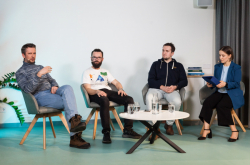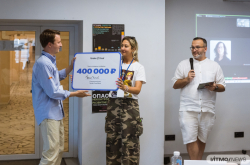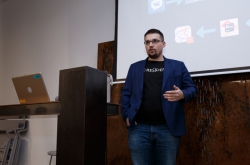Prospects for Russian businesses
Any crisis means not only challenges, but opportunities, too, says Alex Biryukov. Many international players have left the Russian market and the demand for products of those who stayed has risen greatly. Yes, two major foreign brands have left the advertising market, leaving Russian marketologists unable to launch ad campaigns. But, according to the entrepreneur, specialists are already successfully adapting to new platforms and tools, such as Yandex and myTarget. In addition, they still have social networks, such as VK, through which to interact with audiences in Russia and CIS nations.
“Technically, we haven’t lost the ability to connect to audiences. We already see that money has moved to other platforms. Of course, it’s important to develop solutions tailored for the Russian market now. But we have to remember the CIS nations, too, of which there are more than a few. Those regions worked well with Russian platforms earlier, and nothing should change in that regard in the future,” he says.
According to Ilya Chekh, the ability to survive and conduct business in uncertain conditions is an integral quality of an entrepreneur. And their main task is to see opportunities where others wouldn’t even dare launch a business.
“I believe that a crisis is more about opportunities than challenges and issues. Entrepreneurs exist in an atmosphere of uncertainty, they need those challenges. It’s like an addiction. In that sense, we can learn from the stories of those who launched startups, solved issues and tackled obstacles, and then sold their businesses or took the backseat when their company reached a stable, uneventful level of activity. To a true entrepreneur, uncertainty is their natural habitat,” he concludes.
Ilya Chekh. Credit: motorika.org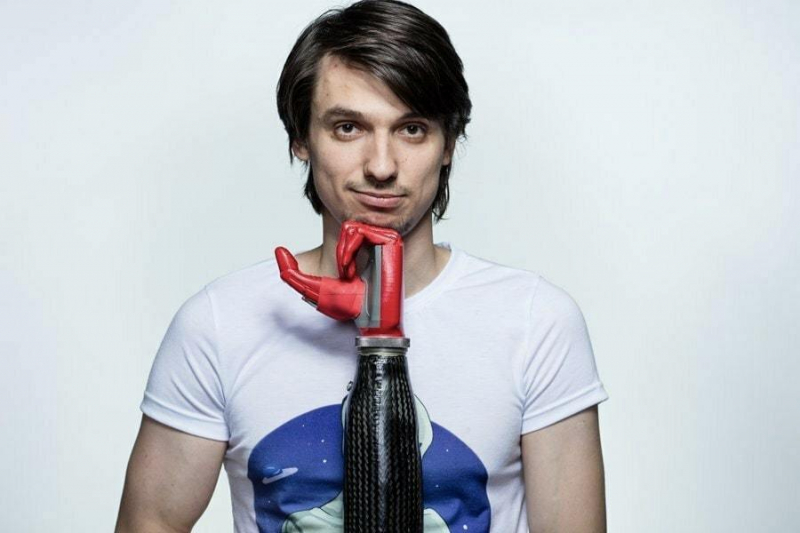
Ilya Chekh also notes that almost all of Motorika’s major competitors have left the market, and thus the company’s task for the next year is to use this situation to enlarge its share of the market. However, he admits, innovative tech startups will indeed face difficulties in the near future, mostly due to issues with venture funding. Companies that can offer clear solutions, fulfill their clients’ pressing needs, and quickly recoup their costs are the ones that will succeed. In robotics, for instance, that applies to service robots designed for specific purposes. Still, Ilya Chekh says, it’s quite possible to find funding for such projects even now.
“Venture funding, for the time being, will pretty much stop being a thing. But we’re seeing grant initiatives pop up, including those focused on substitution of imports. For instance, the Foundation for Assistance to Small Innovative Enterprises (FASIE) has already announced a new competition. State support is also growing, providing conditions for new scientific and tech businesses. But you must keep in mind that the advantage will be with clear-cut projects aimed at quick recoupment of costs,” notes the Motorika founder.
Sergey Safonov agrees – he is confident that now is the time for so-called “lifestyle businesses.” These are small-scale companies that have small teams and target quick profits. Another opportunity for entrepreneurs is the great number of qualified staff on the labor market, especially among developers and marketologists.
“There are many senior developers and experienced marketologists in the country who, for various reasons, aren’t interested in moving abroad. And if you make them your partners – give them a reasonable share of your business or a percentage of revenue, not stock options like startups often do – you’ll be able to put together a truly capable team. By attracting such people, you will be able to launch your own small business – and small businesses, in my opinion, have a lot of opportunities right now,” he says.
Finding your window of opportunity
In Alex Biryukov’s opinion, the first opportunity one can make use of is to “sell yourself” and your professional skills – not for a salary, but by working at your own company. And you don’t even need to launch a whole startup and put a team together. If you’re a professional in your field, nothing is stopping you from working for yourself. You’ll need great hard skills, a dedication to your trade, and an understanding that, at least at first, you’ll need to personally take care of all processes including finding clients, making sales, etc.
International companies pulling out means that Russian consumers have lost a number of products. For entrepreneurs, this is a chance to fill a niche by selling their own products or bringing in goods from India and China, says Sergey Safonov. Even though marketplaces are an old story in the entrepreneurial community, they might experience a period of revival now, says the expert. In the nearest year, stores will either experience a deficit of products due to logistics disruptions, or will sell them at inflated prices. Now is the time for entrepreneurs to agree with Indian, Chinese, or Russian production plants to produce, for instance, cosmetics or toys, launch their own brand, and sell their products at low cost through marketplaces. What’s important is that marketplaces have quick turnover cycles. If you agree on a deferred payment with the manufacturer and manage to sell off your product in time, you won’t need a lot of working capital and your business can grow even without external investments.
It’s better to start your business with simple products, agrees Ilya Chekh. Having accumulated your first experience, you’ll be able to move on to expanding and deepening your range of products and their functionality.
“If I were launching a business today, I would start with simple things – vending machines, service robots, computerization of businesses, equipment for packing and conveyor lines. These are things that are accessible by their nature and by the technologies they require,” he says.
Finding your mentor
But how does a student, who only has an idea and isn’t familiar with the intricacies of business, start on their path? How do you avoid making a mess? It’s completely normal to seek advice when building your business. That’s why mentors exist. But it’s important to know just what kind of specialist you’re looking for, notes Alex Biryukov. A tracker-mentor is someone who monitors your startup’s progress throughout an acceleration program and motivates your team. And a mentor is a renowned expert whose responsibility is to understand which stage you and your business are at and help you become better.
“A mentor’s task is to hone your skills. Don’t see them as a “human Google” to whom you can go for answers to your questions. Their goal is to make you more adept at what you do, and their path may be different from what you’d expect. When you come to your mentor with an issue, the worst answer you can get is “Do X” or “Do Y.” What they should be asking is “What did you do before?”, “What were you unable to accomplish?”, “What were the results?”, and “Have you tried this?” If you’re getting direct advice, that’s not a mentor,” explains Alex Biryukov.
Alex Biryukov. Credit: sberbank.org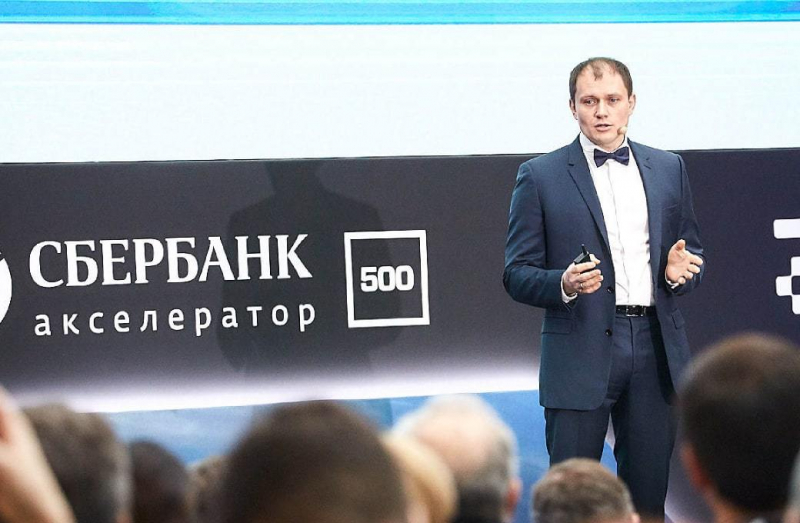
Ilya Chekh agrees. Upon starting his own company, he, too, sought help from mentors and consulted with them on presentations and his startup’s financial model. When choosing a mentor, he suggests thinking about the one aspect of your business that you need to develop right now. Sergey Safonov, for his part, suggests choosing a mentor whose own company employs a lot more staff than yours, but have achieved this level of growth recently.
You can find a good mentor at various acceleration programs, such as SberStudent, Skolkovo Technopark, Impact Hub Moscow, and various regional and university-wide programs. Another option is to make use of special-purpose platforms like Experum. Experienced mentors can also be found at the ITMO Accelerator – in fact, a new acceleration season is about to begin and applications can be submitted until April 20.
The discussion can be watched in its entirety (in Russian) here. The first meetup involved the entrepreneurs Ivan Khaustov, Yaroslav Gorodetsky, Pavel Berman, Dmitry Voloshin, Vasilii Meshcheryakov, and Vitaly Yanko. During the event, the participants discussed relocation, startup development for those who’ve decided to stay, and which specialists will be in particular demand in the near future. A recording of the first meetup can be watched here (in Russian), while the summary can be found in this ITMO.NEWS article.



